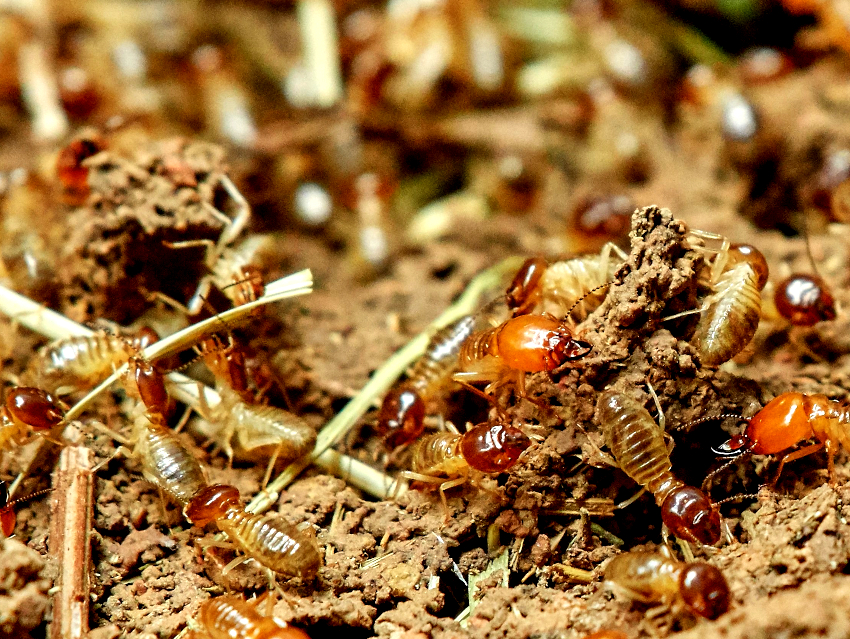Wheat straw, a waste product from grain production, can be used as a sustainable source of biofuels and useful chemicals. However, before the straw can be converted to useful products by biorefineries, the polymers that make it up must be broken down into their building blocks.
The three main polymers in dried plant material are cellulose, hemicelluloses, and lignin. The first two polymers are polysaccharides, which can be broken down into sugars and then converted to fuel in bioreactors. Lignin, on the other hand, is an aromatic polymer that can be converted to useful industrial chemicals. Enzymes from fungi can degrade lignin, which is the toughest of the three polymers to break down. However, bacterial enzymes might be easier to produce.
Guillermina Hernandez-Raquet, University of Toulouse, France, and colleagues have found that microbes from the guts of certain termite species can help break down lignin in anaerobic bioreactors. The researchers added guts from each of the four higher termite species Nasutitermes ephratae, Nasutitermes lujae, Microcerotermes parvus, and Termes hospes to separate anaerobic bioreactors and then added wheat straw as the sole carbon source. After 20 days, they compared the composition of the digested straw to that of untreated straw.
All of the gut microbiomes degraded lignin (up to 37 %), although they were more efficient at breaking down hemicelluloses (51 %) and cellulose (41 %). The remaining lignin in the straw had undergone chemical changes, such as the oxidation of some of its subunits. According to the researchers, further insights into the lignin structures and the termite gut microbiomes could allow for a better understanding of lignocellulose biodegradation by wood-feeding insects and contribute to potential applications in lignocellulose biorefineries.
- Termite Gut Microbiota Contribution to Wheat Straw Delignification in Anaerobic Bioreactors,
Louison Dumond, Pui Ying Lam, Gijs van Erven, Mirjam Kabel, Fabien Mounet, Jacqueline Grima-Pettenati, Yuki Tobimatsu, Guillermina Hernandez-Raquet,
ACS Sustainable Chem. Eng. 2021.
https://doi.org/10.1021/acssuschemeng.0c07817




